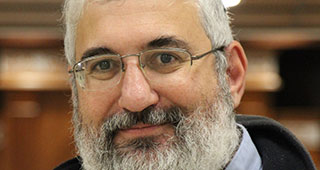Beit Midrash
- Sections
- Chemdat Yamim
- P'ninat Mishpat
Ruling: On the one hand, pl was mochel (relinquished) his claim with several statements, and he did not contact beit din with a retraction of the mechilla when he had a chance to calm down. However, he did not know at that time that he would have to continue the legal process because of the countersuit, and therefore the mechilla is not valid in the case that def wants to continue the adjudication.
Def have beit din’s permission to sue otdef in secular court. While we understand the desire to hold all related adjudication in one place, this does not override pl’s basic right to go to beit din. Therefore, it is def’s decision to choose between countersuing pl in beit din while defending themselves against pl’s claim or dropping their countersuit against pl.
Regarding the beit din fee, if they drop the countersuit, they will be reimbursed in full. If they want to lower their claim, they will get an incremental refund. In any case, we are charging pl for the beit din hearing which he halted by his unauthorized leaving. He is to pay 800 shekels to def and 600 shekels to beit din for expenses.
To the extent that def would like to continue with the suit, pl can demand that def will himself come to beit din to represent himself in relation to matters about which he has specific knowledge. The fact that def was allowed to not be present at the first hearing is legitimate in this case on its merits, and pl does not have grounds to disparage def or beit din.

P'ninat Mishpat (803)
Various Rabbis
599 - Believing the Worker about What Work he Did – part II
600 - A Defendant Continuing Adjudication after the Plaintiff Halted it
Load More

P'ninat Mishpat: Reducing Amount Owed Due to Interest Taken
based on ruling 84057 of the Eretz Hemdah-Gazit Rabbinical Courts
Beit Din Eretz Hemda - Gazit | Tammuz 5785

P'ninat Mishpat: A Seller with Questionable Rights to the Property – part II
based on ruling 84062 of the Eretz Hemdah-Gazit Rabbinical Courts
Beit Din Eretz Hemda - Gazit | Cheshvan 5786

P'ninat Mishpat: How Far Does a Lien Go?
based on ruling 83097 of the Eretz Hemdah-Gazit Rabbinical Courts
Beit Din Eretz Hemda - Gazit | Shevat 5784

P'ninat Mishpat: Unsuccessful Transfer of Yeshiva – part IV
based on ruling 82138 of the Eretz Hemdah-Gazit Rabbinical Courts
Beit Din Eretz Hemda - Gazit | Nisan 5784

Beit Din Eretz Hemda - Gazit

Limiting Exorbitant Lawyer’s Fees – part I
(Based on ruling 81120 of the Eretz Hemdah-Gazit Rabbinical Courts)
Tishrei 29 5783

Departure of an Uncle to Eretz Yisrael
Igrot Hare’aya – Letters of Rav Kook: Vol. I, #1 , p. 1-2 – part II
Tevet 21 5781

Trying to Arrange Purchase of Land in Eretz Yisrael – part II
#229 Date and Place: 13 Tishrei 5670 (1909), Yafo
19 Sivan 5784

























